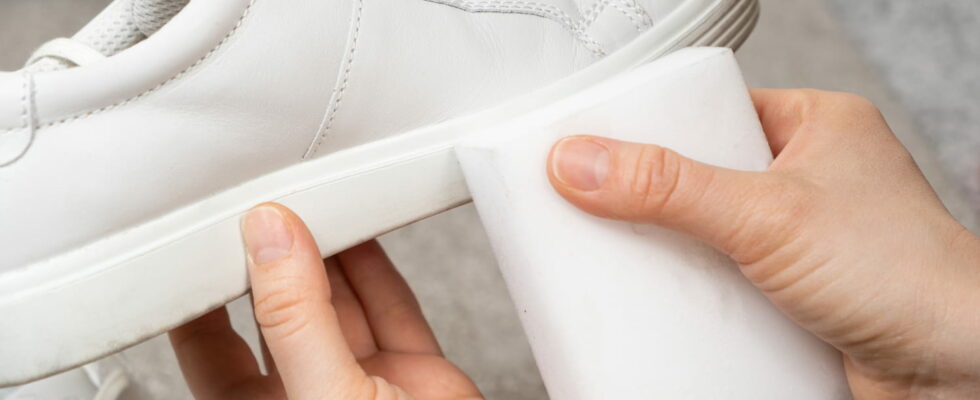As practical as they are effective for removing all kinds of dirt, white magic sponges have invaded our homes. But they contain a real danger according to scientists who recommend no longer using them.
In recent years, sponges and other “magic” erasers have become essential for household cleaning. It must be recognized that these very accessible products – they cost less than 2 euros in major brands like Mr Propre or Scotch Brite and a few cents at Action or on Amazon – are extremely effective against stains and other stubborn dirt. However, despite their undeniable qualities, these famous white sponges hide an unsuspected danger that recent studies have brought to light.
Magic sponges are made from melamine foam, a hard but lightweight plastic. This foam is abrasive, which allows cleaning without chemicals. The problem is that every time you scrub with these sponges, they break down into tiny particles. These microplastics disperse throughout the environment, passing through wastewater treatment plant filters and reaching our rivers, lakes and oceans.
Researchers from Nanjing University in China recently published a study in the journal Environmental Science & Technology, where they compared the release of microplastics from different brands of magic sponges. They found that those made of denser foam wore out less quickly and produced fewer microplastic fibers than less dense sponges. However, even the best quality sponges release these harmful particles.
These microplastics pose risks to human health. Once in the water, they can be ingested by fish and other aquatic organisms, and eventually move up the food chain to us. Microplastics often contain chemicals that disrupt the hormonal system. These disruptions can increase the risk of reproductive disorders and certain cancers. Additionally, microplastics can carry toxic substances like heavy metals.
To limit these risks, it is essential to look for alternatives to magic sponges. Natural sponges, made of cellulose or loofah, are biodegradable and do not release microplastics. Microfiber cloths, although made of plastic, are durable and shed fewer fibers than melamine sponges. Using cleaning brushes with natural or synthetic bristles is another viable option. Finally, homemade cleaning solutions using baking soda and vinegar are effective and environmentally friendly.
By reducing our daily use of plastic and opting for reusable and sustainable products, we can reduce our plastic footprint and protect our health and that of our planet. Changing our cleaning habits may seem like a small act, but it can have a significant impact. Also, before grabbing your magic sponge, think about the alternatives. They are not only better for the planet, but also for you!
